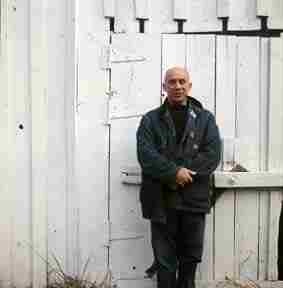“Indeed, the truth that many people never understand, until it is too late, is that the more you try to avoid suffering, the more you suffer, because the smaller and more insignificant things begin to torture you, in proportion to your fear of being hurt. The one who does most to avoid suffering is, in the end, the one who suffers most: and his suffering comes to him from things so little and so trivial that one can say that it is no longer objective at all. It is his own existence, his own being, that is at once the subject and the source of his pain, and his very existence and consciousness is his greatest torture. This is another of the great perversions by which the devil uses our philosophies to turn our whole nature inside out, and eviscerate all our capacities for good, turning them against ourselves.”
– Thomas Merton, The Seven Storey Mountain
_________
I recently began reading Merton after years of knowing him by name only, and his work has not yet disappointed me. His life is an incredible account from the start, traveling with artist parents all over Western Europe and the U.S. by the age of 16. Although he was not raised religiously, his background was more Protestant and his views toward Catholicism were suspicious at best in his formative years. Over a decade later, he reflects on his pain through the slow tragedy of his father’s death from his position as a Trappist monk, and comes to the conclusion above.
I find not only that these statements ring true, but that they ring especially true in an age where so many have been taught to fear suffering. It is strange to see that as science and technologies advance, cultures seem to increasingly cling to them as a source of removal of suffering. We approaching medicine with a sort of mystical attitude, collectively treating the medical industry with the awe and respect that a tribal people would give to a witch doctor. This atmoaphere of fear and being constantly aware of the unknown leaves us a people crying “foul!” of any tragedy that befalls us personally.
I find Merton’s last spiritual statement here, as in many other places throughout his writing, to feel slightly non sequitur to someone outside his perspective. As someone raised surrounded by Catholicism without knowing much of a Catholic perspective, his deep philosophical thoughts are refreshing and require more contemplation on my part.
_________
Further Reading

Thanks. Merton’s wisdom was hard won and so speaks to us as adults. Regards Thom.
LikeLike